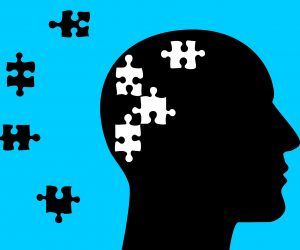
The Mental Fatigue You Feel Is Called ‘Cognitive Dulling’ and You Are Not Alone if You Are Experiencing It
University of Texas Health Science Center at Houston via Newswise – Someone asks you a simple question and you snap. Common tasks, like washing the dishes, feel impossible to accomplish. Constant virtual meetings on camera leave you feeling drained and make it difficult to concentrate on other duties.
If you’ve experienced any of those scenarios, or simply a shift in emotional state and decline in performance, mental health experts at The University of Texas Health Science Center at Houston (UTHealth) said you could be experiencing “cognitive dulling.”
What Is Cognitive Dulling?
Cognitive dulling is a form of mental fatigue that leads to difficulty concentrating, decreased productivity, and a decline in emotional and mental health, according to Jennifer Bahrman, PhD, assistant professor in the Louis A. Faillace, MD, Department of Psychiatry and Behavioral Sciences. She said it is the result of our bodies being in “survival mode” for the past year during the COVID-19 pandemic and enduring heightened stress levels, changes in routine and environment, and fear of the future.
“March marked the one-year anniversary of stay-at-home orders across the country,” Bahrman said. “We thought the pandemic precautions would last for two weeks or even two months, but they’re still going on in various ways a whole year later. There’s been glimmers of hope with the vaccines and recent drops in case numbers, but many are still worried about the economy, whether we will see another COVID-19 wave with the new variants, and whether enough precautions are being taken. Many people are living in a constant state of fear wondering, ‘Am I going to become sick? Will I get someone else sick?’ People are adapting to new work and school environments while trying to emotionally process the huge amount of lives lost over the past year. It all takes a toll.”
“Cognitive dulling is a combination of decision fatigue and Zoom fatigue, plus all of the other new things we’ve been experiencing during the pandemic,” said Vineeth John, MD, MBA, professor and vice chair for education in the Faillace Department of Psychiatry and Behavioral Sciences. “It’s also the result of our regular experiences and daily routines constantly being altered. And dealing with constant isolation from the pandemic can prevent us from being present, productive, and creative.”
Cognitive dulling can be caused by:
- Social isolation
- New routines
- Poor boundaries between work and home life
- Juggling having children at home while working
- Countless decisions about safety – for example, “Should I go to the store or order curbside groceries?”
- Video conference meetings – having to constantly focus on the computer screen and what you look like on-screen
- Heightened stress levels
- Worry about the future
- Emotionally processing loss of life
What Does Cognitive Dulling Affect?
Cognitive dulling can affect performance at work and at home.
“If you are working from home, do you stop working at 5 p.m.? Many are working longer hours because they work through the time they would typically be commuting home. ‘Am I ready to end the day or could I be doing more?’ becomes another decision that needs to be made. If you are working additional hours, are you working at peak performance levels during that extra time? It can be difficult to focus for so long and many people feel guilty about not performing at a high level. There’s a sense of ‘I’m fortunate to have a job, so I need to do my best.’ And with our minds and bodies already going through so much, it can be difficult to manage it all,” Bahrman said.
Mental fatigue can also leak into many other areas of life, including how we spend our free time.
“Now we have to think twice about things we used to enjoy on the weekend or in our spare time. You have to question, ‘Am I going to feel comfortable playing tennis with a friend or getting takeout from a restaurant?’ We’re constantly in survivalist mode and that affects how we function across the board,” Bahrman said.
What Can I Do to Combat Cognitive Dulling?
- Self-care, self-care, self-care: Bahrman noted that the term has almost become taboo, but self-care is something everyone needs to strive to do to give themselves a break. Options include practicing mindful meditation, meal-prepping so you can maintain a good diet, doing a hobby you enjoy, going on a vacation or staycation, taking a bath, playing with your kids or pets, going for a walk, or reading. Bahrman said just taking some time every day to not have to think can do wonders for your mental health. She noted the importance of encouraging self-care habits in children, too.
- Check in with yourself: Bahrman said it is critical to know your limits, and be kind to yourself when you reach them. “It’s okay to say no,” she said. “I talk about the importance of saying ‘no’ to my patients often. We don’t always need to agree to another meeting or opportunity – there will always be more meetings and opportunities. It is better to turn an opportunity down than to commit to it, but not be able to give it your all.”
- Manage stress in one area of your life: “Focusing on one area of your life, like work or a certain relationship, that you can control your stress in, can help you feel empowered,” Bahrman said. “It can give you a sense of normal in one area that you can build upon in other areas.”
- Take pressure off perfection: “Don’t let perfect be the enemy of good. With so much going on, just do your best and strive for good rather than perfect,” Bahrman said.
- Reduce the amount of decisions you have to make: For example, to make meal planning easier, prepare enough meals for the week over the weekend, Bahrman said. Other ideas include planning your outfits out in advance, simplifying your wardrobe so you don’t have so much to choose from, and helping your children pick their outfits in advance as well.
- Ask for help: Talking to a friend or loved one and seeking help from a professional can improve mental health significantly. “Everyone can benefit from therapy,” Bahrman said.
If you or a loved one are feeling overwhelmed, there are resources available, including the Crisis Text Line. Simply text HOME to 741741 to reach a professional counselor. If you are experiencing a crisis, please contact the Suicide Prevention Lifeline at 1-800-273-TALK. To make an appointment with a UT Physicians mental health specialist, call 888-4UT-DOCS.
To read the original article click here.






